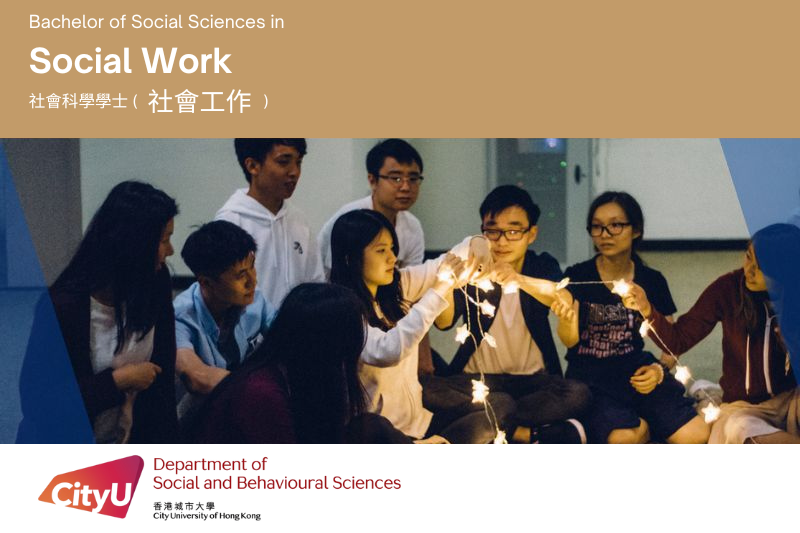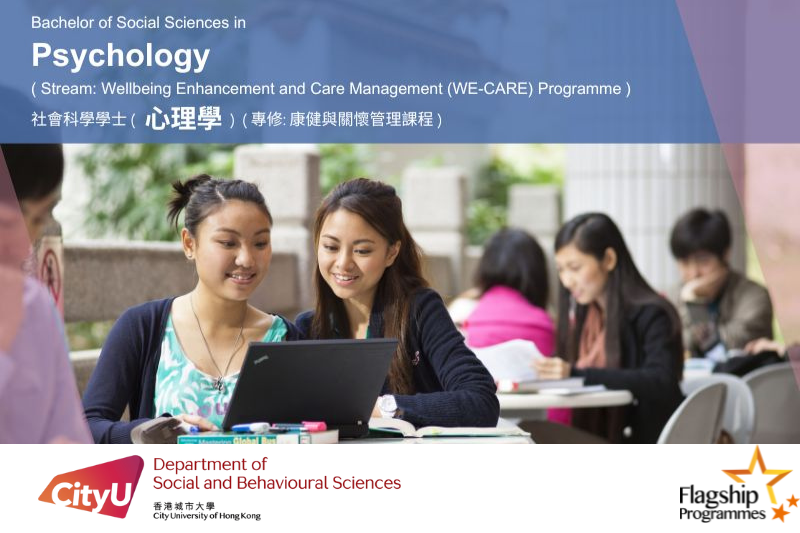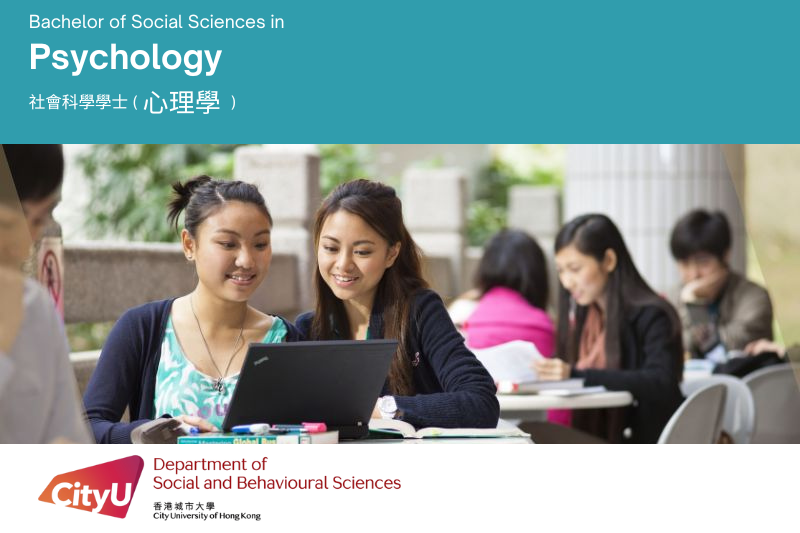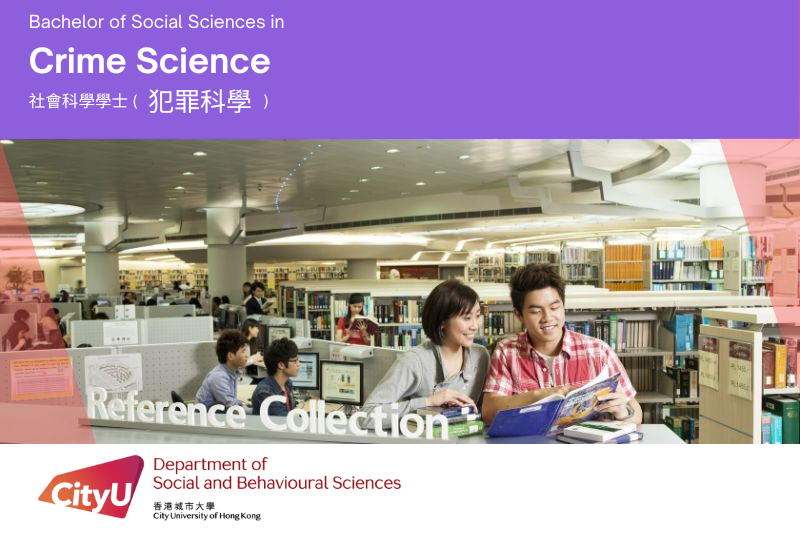BSocSc Social Work (Features: Social Engagement and Concern for People’s Health and Well-Being / Human Diversities and Sustainability / People-in-Environment Interventions)

1113 (JS1113)
Local Places:
54 (For First-Year and Advanced Standing I Entries; Tentative)*
Non-Local Places
(For Overall Direct Applications):
Around 400
* for JUPAS and non-JUPAS admissions
The Bachelor of Social Sciences in Social Work (BSSSW) programme is a helping professional degree that is accredited by the Social Workers Registration Board (SWRB) to promote human and community well-being, with a commitment to upholding human dignity, social equality, and diversity. The programme aims to enable students to evaluate and align personal values with the value base of the social work profession, and acquire knowledge, skills, understanding, and practice competence in the profession. Throughout the course of study, students will receive solid foundation training in social sciences and social work related to their professional practice. Prior to integrating classroom learning into real life practice through two fieldwork placements, students will undergo rigorous theoretical and laboratory training in the classroom. With elective courses concentrated on specific target groups and different working approaches, students can develop specializations in specific areas. To enable students with a breadth of knowledge to successfully navigate the challenges of the 21st century, they will also be exposed to multiple disciplines through gateway education (GE) and college-specified courses offered by the University. To cultivate students as ideal graduates who are globally-minded, critical and innovative, and civically-oriented with effective communication skills, this programme encourages students to work alongside faculty members in research and action learning projects, both locally and overseas.
Uniqueness of the programme
The programme integrates a liberal arts perspective to enrich students’ understanding of the person-in-environment context of professional practice, with a critical analysis and assessment of interpersonal, bio-psycho-social, cultural, and environmental factors. By explaining the use of comparative theories to work with individuals, families, groups, organizations, and communities and applying the knowledge and skills of generalist social work practice with systems of all sizes, students can become competent, reflective, and ethical social work practitioners, capable of carrying out well-prepared professional practice for diverse clients and social groups. Upon completing the BSSSW programme, students are qualified to become registered social workers.
JUPAS Entrance Requirements
| JS1113 BSocSc Social Work | |
| HKDSE Subject | Minimum Level Required |
| English Language | Level 3 |
| Chinese Language | Level 3 |
| Mathematics | Level 2 |
| Citizenship and Social Development | Attained |
| Elective 1 | Level 3 |
| Elective 2 | Level 3 |
Notes:
- Besides Category A elective subjects, Mathematics extended modules (M1/M2) and “other languages” (at grade E or above) can also be used to meet the elective requirement. If students take both M1 and M2, they are counted as one subject only.
- Applied Learning subjects are not counted as elective subjects.
- For details of the alternative Chinese Language qualifications acceptable by the University for Non-Chinese Speaking (NCS) students, please click here.
Admission Interview:
An admission interview is required for applicants to the Social Work major. Interview priority will be given to applicants who have exhibited promising performance in public examinations and/or extra-curricular activities. Strong evidence of your personal qualities, community participation and sustained involvement in extra-curricular and co-curricular activities are desirable to support your application.
Direct/Non-JUPAS Applicants Entrance Requirements
To be considered for admission, you must satisfy the General Entrance Requirements.
An admission interview is required for applicants to the Social Work major. Interview priority will be given to applicants who have exhibited promising performance in public examinations and/or extra-curricular activities. Strong evidence of your personal qualities, community participation and sustained involvement in extra-curricular and co-curricular activities are desirable to support your application.
During their first year, students will study a broad range of Gateway Education (GE), College core and Departmental requirement courses.
For details of the programme’s curriculum structure, please visit the ‘Undergraduate Catalogue’.
This major enables students to evaluate and align their personal values with the value base of the social work profession, and to acquire knowledge, skills, understanding and competence in reflective professional practice. Upon successful completion of this major, student should be able to:
- evaluate and align their personal values with the value base of the profession and its ethical standards and principles, and practise accordingly;
- integrate the liberal arts perspective that enriches understanding of the person-in-environment context of professional practice with critical analysis and assessment of interpersonal, bio-psycho-social, cultural and environmental factors;
- explain the use of comparative theories of working with individuals and families, groups, organisations and communities;
- use communication skills differentially and creatively across client populations, colleagues and communities;
- apply the knowledge and skills of generalist social work practice with systems of all sizes and integrate new ideas into practice;
- demonstrate the skills to practice without discrimination, with respect and knowledge of clients’ characteristics, cultural beliefs and contexts;
- apply critical thinking skills within the context of professional social work practice;
- describe the forms and mechanisms of oppression and discrimination and apply advocacy and social change strategies that advance social and economic justice;
- conduct research studies and evaluate and apply research findings to provide creative solutions to practice within the community, with an aim to engage in evidence-based practice; and
- demonstrate knowledge, understanding and competence in practice through reflection to accomplish discovery and innovation in social work practice.
Based on its learning objectives, this major has the following main components:
- College Core Courses
- Social Work Core Courses
- Social Work Elective Courses
- Concurrent Practicum
Please refer to the Undergraduate Catalogue for further details on these courses.
Upon graduation, you will have the competence to practise as a professionally qualified social worker in a variety of settings through which human services are delivered (e.g. social services agencies, schools and health care institutions); work in the field of human resources (e.g. customer service and staff training); or pursue further studies in social work or related fields (e.g. psychology and education). You will also be eligible to apply for social work positions as a Registered Social Worker (RSW) in government and non-government organisations.
Graduates are qualified to register with the Social Workers Registration Board as Registered Social Workers (RSW). The qualification is recognised by the majority of societies throughout the world.
- 10 full-time undergraduate social work students are awarded HKD 25,000 each under the HSBC Social Work Scholarship Scheme every year.
- Students with outstanding academic performance can apply for non-local fieldwork placement at other countries/cities, such as United States, Canada, Australia, Singapore, etc.
- Access to a rich array of co-curricular activities, such as student exchanges, summer internships, study tours, volunteer services and other whole person development activities, and the like.
- Opportunities to work alongside teachers in research and action learning projects locally or overseas.
- Minor studies in psychology, applied sociology and criminology are offered to students within the Department. Students are also welcome to declare minor studies in disciplines outside the Department.
On a selective basis
- Late February to early March 2025
- Group interview (1 hour)
- English and Chinese
On a selective basis
- Late July to early August 2025
- Group interview (1 hour)
- English and Chinese


